What Can You Expect from Your Investment in Essential Coaching Skills for Product Leaders?
First off, I want to say thank you to everyone who’s been in touch over the past week to show interest in my Essential Coaching Skills for Product Leaders course and to ask some great questions about what we’ll be doing, how you’ll be learning, and much more.
The most popular question by far has been about the ROI from the course. Everyone from potential participants and their managers to HR partners and leadership development contacts is keen to know what you’ll really get out of this investment.
I think it’s important to start with the caveat that with any type of training or learning opportunity, you’re going to get out of it what you put into it. For that reason, I can’t guarantee any specific outcome or ROI.
At the same time, I understand that you may need to make the case for why to make this investment, so I’ll share some research and insights that I believe can help you evaluate the potential benefits in terms that matter to your business.
If you are committed and you show up to each session, are present, participate, and continue to practise outside of the course, you will start to build coaching skills. By the end of our five weeks together, these skills will start to show up in how you approach work overall, how you lead and develop teams, and the relationships you have with your team members, stakeholders, and managers overall. (Maybe even your partners, spouses, family, and friends, too!)
To put some data alongside that statement, let’s take a look at what research says about the benefits of coaching in the workplace.
Increased self-confidence: According to the International Coaching Federation (ICF), 80% of individuals who receive coaching report increased self-confidence. The coaching leadership style is based on a fundamental belief that we all have the capability to solve our own problems. When we put that belief into action, we suddenly have very different perspectives about what we can achieve and what those around us are capable of. The result is that individuals feel more confident in making decisions and taking ownership of their work. There’s an overall boost to self assurance and agency in the leader and those around them.
Improved performance and relationships: Over 70% of people who receive coaching benefit from improved work performance, relationships, and more effective communication skills, as reported by the ICF. Coaching focuses on helping people identify their strengths and areas for development, leading to enhanced performance, improved communication, and overall better relationships with colleagues, stakeholders, and managers.
Increased engagement and commitment: Research by the ICF also indicates that 69% of organisations experience increased engagement, and 66% observe increased commitment among employees as a result of coaching initiatives. Similarly, a report from Harvard Business Review shows that 40% of organisations that usecoaching or mentoring report that their organisation has realised better retention of desired talent, compared to 24% of those that do not use mentoring or coaching.
And while some organisations might see these benefits as a “nice-to-haves” and not “must-haves,” let’s take a very product-focused view of the situation and consider at the potential cost for delay of not adopting the leader as coaching mindset:
According to 15Five’s 2022 Workplace Report, more than half (53.8%) of workers say an unsupportive manager would be a key factor behind their decision to leave their company. An even greater number of those surveyed felt that having a supportive manager would be an important reason to stay.
From the manager’s perspective, 65% of managers struggle to perform. They’re feeling less prepared and more challenged than ever before, according to 15Five’s 2020 Workplace Report.
And that’s no surprise, as the Chartered Management Institute (CMI) found recently that as many as 82% of new managers in the UK are what it calls “accidental managers” – embarking on the role with no formal training in management or leadership.
What’s the most likely result for your organisation?
High turnover rates as team members and leaders leave in search of new, supportive growth opportunities.
Continued reliance of traditional leadership styles (command control/authoritarian/directive ... you pick the word :) that limit any opportunity for growth and simply don’t resonate with the more progressive ways of working that many of our product organisations strive for.
Burnout for leaders who are trying to be the hero and solve everyone’s problems and for their team members as well who are told to just execute again and again.
Beyond the bottom line: How do coaching skills create more effective product leaders?
Coaching skills like learning to listen actively, ask powerful questions, building trust, being present, knowing how to structure clear agreements and conversations and much more may seem simplistic, but together they provide you with the foundations for a new approach to real-world leadership challenges you face every day.
They help you to bring new approaches to challenging on-the job situations that previously would have left you stressed, overwhelmed, and frustrated.
Instead of going back to solving problems for others, you will now have the skills to help colleagues and team members explore their own solutions—ones that will truly work best for their individual situation.
Not only does this skill set take the pressure off the coach to come up with ALL the solutions, but it encourages your teammates to develop a sense of ownership over their projects and challenges.

